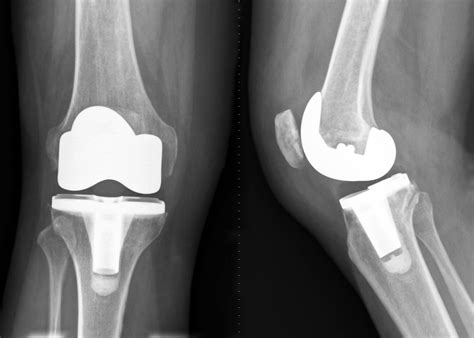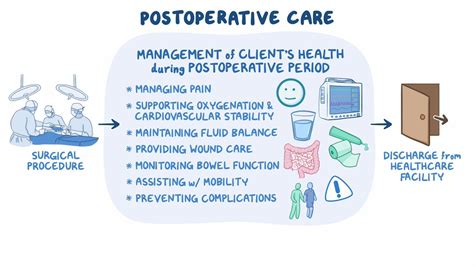Intro
Knee replacement surgery is a significant medical procedure that can greatly improve the quality of life for individuals suffering from severe knee pain and limited mobility. The decision to undergo knee replacement surgery is often made after other treatment options have been exhausted, and the prospect of a life with reduced pain and increased mobility becomes a reality. However, the journey to full recovery is just as crucial as the surgery itself. Understanding the process, challenges, and strategies for a successful recovery is essential for patients to make informed decisions and prepare themselves for the road ahead.
The importance of a well-planned recovery cannot be overstated. It is during this period that the body heals, and the new knee joint begins to function as it should. A smooth recovery not only minimizes the risk of complications but also ensures that the patient can return to their normal activities as soon as possible. Patients who are well-prepared and informed about what to expect during their recovery tend to have better outcomes and are more satisfied with their results. This guide aims to provide a comprehensive overview of the knee replacement surgery recovery process, covering everything from the immediate post-operative period to the long-term rehabilitation and lifestyle adjustments.
The road to recovery from knee replacement surgery is unique to each individual, influenced by factors such as overall health, the presence of other medical conditions, and the patient's adherence to the post-operative instructions. Generally, the recovery process can be divided into several phases, each with its specific challenges and milestones. The immediate post-operative phase is critical, as it lays the foundation for the rest of the recovery journey. During this time, patients are closely monitored for any signs of complications, and they begin their initial rehabilitation under the guidance of healthcare professionals.
Knee Replacement Surgery Overview

Knee replacement surgery, also known as arthroplasty, involves the surgical replacement of a diseased or damaged knee joint with an artificial one. The procedure can be performed on either one knee (unilateral) or both knees (bilateral) and is typically recommended for patients with severe knee damage due to conditions like osteoarthritis, rheumatoid arthritis, or post-traumatic arthritis. The surgery itself can vary in technique, with the most common being total knee replacement, where the entire knee joint is replaced, and partial knee replacement, where only the damaged part of the knee is replaced.
Benefits of Knee Replacement Surgery
The benefits of knee replacement surgery are numerous, with the most significant being the reduction or complete elimination of knee pain. Patients can also expect to see improvements in their mobility and ability to perform daily activities with greater ease. The psychological impact of regaining independence and being able to participate in activities that were previously limited by knee pain should not be underestimated. Furthermore, advances in surgical techniques and technology have made the procedure safer and more effective, with many patients returning to activities they enjoy, including sports, without the hindrance of chronic knee pain.Preparing for Recovery

Preparation is key to a successful recovery from knee replacement surgery. This involves not just the physical preparation but also the emotional and logistical. Patients are advised to stop smoking and reduce their alcohol intake, as these can impede the healing process. A healthy diet rich in nutrients is also crucial for recovery. Logistically, patients should prepare their home by removing tripping hazards, installing handrails in strategic locations, and possibly arranging for a temporary living space on a single level to minimize the need for stairs.
Recovery Timeline
Understanding the recovery timeline is essential for managing expectations and planning post-operative care. The immediate recovery period in the hospital usually lasts a few days, during which time patients begin their rehabilitation with the help of physical therapists. Upon discharge, patients continue their rehabilitation at home or in a rehabilitation facility, depending on their specific needs and circumstances. The initial weeks are critical, with most patients requiring assistance with daily activities. As the weeks turn into months, patients gradually regain their strength and mobility, with many being able to return to their normal activities within a few months.Post-Operative Care and Rehabilitation

Post-operative care and rehabilitation are tailored to the individual's needs and progress. Physical therapy plays a central role in the recovery process, helping patients to regain their range of motion, strengthen their muscles, and improve their balance and coordination. Patients are also provided with a regimen of pain management medications to control discomfort and are advised on how to monitor and manage potential complications such as infection or blood clots.
Challenges During Recovery
While the prospect of recovering from knee replacement surgery can be daunting, being aware of the potential challenges can help patients prepare and cope. Common challenges include managing pain, dealing with swelling and bruising, and navigating the emotional ups and downs that can come with significant life changes. Support from family, friends, and healthcare professionals is vital during this period, as is maintaining a positive outlook and focusing on the progress made towards recovery.Long-Term Outcomes and Lifestyle Adjustments

The long-term outcomes of knee replacement surgery are generally positive, with most patients experiencing significant improvements in their quality of life. However, the success of the surgery also depends on the patient's commitment to their rehabilitation and making certain lifestyle adjustments. This includes maintaining a healthy weight to reduce stress on the new joint, engaging in regular exercise to keep the joint mobile and the surrounding muscles strong, and avoiding high-impact activities that could potentially damage the artificial joint.
Maintaining a Healthy Lifestyle
Maintaining a healthy lifestyle post-surgery is crucial for the longevity of the artificial joint and overall well-being. A balanced diet, regular exercise, and avoiding harmful substances like tobacco are all important. Additionally, patients should stay hydrated, manage their stress levels, and ensure they get enough sleep. Regular follow-up appointments with their healthcare provider are also essential to monitor the progress of the recovery and address any concerns or complications that may arise.Complications and Risks

As with any major surgery, there are potential complications and risks associated with knee replacement surgery. These can include infection, blood clots, nerve damage, and reactions to the anesthesia. While these risks are present, they are relatively rare, and the vast majority of patients undergo knee replacement surgery without experiencing significant complications. Being aware of these risks and following the post-operative instructions carefully can help minimize them.
Minimizing Risks
Minimizing the risks of complications involves a combination of pre-operative preparation, careful post-operative care, and long-term lifestyle adjustments. Patients should adhere strictly to their medication regimen, follow the instructions provided by their healthcare team, and attend all scheduled follow-up appointments. Early detection and management of potential issues are key to preventing more serious complications from developing.Conclusion and Future Perspectives

In conclusion, knee replacement surgery offers a life-changing opportunity for individuals suffering from severe knee pain and limited mobility. While the recovery process can be challenging, being well-informed and prepared can make a significant difference in outcomes. As medical technology and surgical techniques continue to evolve, the future of knee replacement surgery looks promising, with potential advancements in personalized implants, minimally invasive procedures, and enhanced rehabilitation protocols.
Looking to the Future
Looking to the future, the advancements in knee replacement surgery are expected to continue, with a focus on improving patient outcomes, reducing recovery times, and enhancing the durability of artificial joints. Patients who are considering knee replacement surgery should stay informed about the latest developments and discuss their options and expectations with their healthcare provider. By doing so, they can make the most informed decision about their care and look forward to a future with reduced pain and increased mobility.What are the most common reasons for knee replacement surgery?
+Knee replacement surgery is most commonly performed to treat severe osteoarthritis, rheumatoid arthritis, and post-traumatic arthritis, where the knee joint is significantly damaged, causing chronic pain and limiting mobility.
How long does it take to recover from knee replacement surgery?
+The recovery time from knee replacement surgery can vary, but most patients can expect to spend several weeks using assistive devices for mobility, with full recovery taking several months. The ability to return to normal activities depends on the individual's overall health, the presence of any complications, and their adherence to the rehabilitation program.
Are there any alternatives to knee replacement surgery?
+Yes, there are alternatives to knee replacement surgery, including physical therapy, pain management medications, and in some cases, less invasive surgical procedures. However, for many patients with severe knee damage, knee replacement surgery offers the best option for significant and long-lasting relief from pain and improvement in mobility.
We invite you to share your experiences, ask questions, or seek advice on knee replacement surgery and its recovery process. Your insights and feedback are invaluable in helping others navigate their journey towards a life with reduced pain and increased mobility. Whether you're considering knee replacement surgery or are in the midst of your recovery, remember that you're not alone, and there's a community of individuals and healthcare professionals ready to support and guide you every step of the way.
